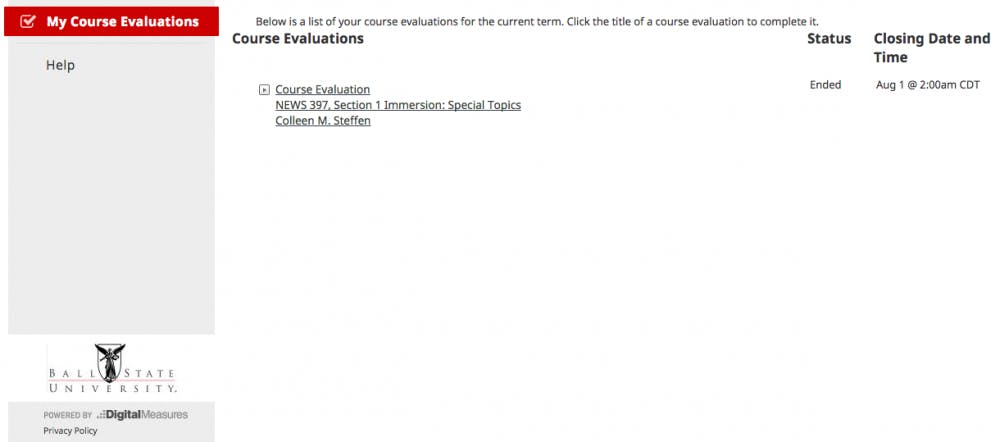The university is in the process of finding a new company to administer the online teacher evaluations students fill out at the end of each semester.
The current company, Digital Measures Course Response, will continue its service with the university until the end of the academic year. It has decided to not be in the business of teacher evaluations anymore.
James A. Jones, ex officio member of the teacher evaluations committee, said the university created a request for proposals that outlined the system requirements for an online evaluation, then vendors were able to submit proposals.
A new system will be put into place by Fall 2016, and a vendor should be picked by early spring, Jones said.
Shaheen Borna, a marketing professor and member of the teacher evaluations committee, said there are five companies that have bid for the new system. Costs of the new company range from $24,000 to $26,000 annually. The price of the current program is $24,000 annually.
However, Borna said the results of the evaluations aren't an accurate representation of professor performance.
Borna said the sex and gender of instructors play a role in the ratings students give them. The difficulty and frequency of exams also factor into the ratings, and if students write comments, they are typically only negative and long.
“It is common sense if my tenure merit promotion depends on that, I’m going to do anything I can to increase my popularity in the class,” Borna said.
Evaluation forms that ask students whether they liked the course and the instructor are measuring personality and charisma more than the ability to effectively teach, he said.
Depending upon the academic units, a professor's score is formed as an average of how students scored professors in the various categories. Borna said it is difficult to measure the correct areas categorized on the evaluation.
“For instance, we put, ‘Is your professor available?’ What does that mean? I am not available 24 hours here,” he said. “We need to be careful in writing these questions.”
There are a general set of questions for each professor, as well as questions unique to each department.
“There are very easy, inexpensive ways without identifying the student where they can relay their feedback to faculty,” Borna said. “They can produce this software at Ball State University.”
The university used to require students to complete the evaluations prior to receiving their final grades, but Jones said that policy was discontinued in Fall 2014.
“As with many things, there are different opinions as to how well the students’ perception is reflective of the actual quality of teaching," Jones said.





